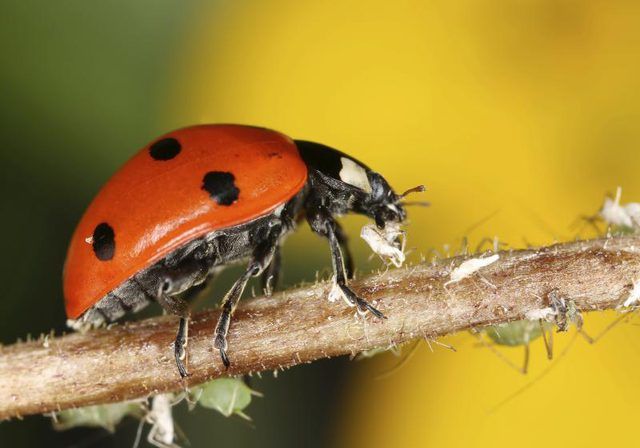Bulbs
Flower Basics
Flower Beds & Specialty Gardens
Flower Garden
Garden Furniture
Garden Gnomes
Garden Seeds
Garden Sheds
Garden Statues
Garden Tools & Supplies
Gardening Basics
Green & Organic
Groundcovers & Vines
Growing Annuals
Growing Basil
Growing Beans
Growing Berries
Growing Blueberries
Growing Cactus
Growing Corn
Growing Cotton
Growing Edibles
Growing Flowers
Growing Garlic
Growing Grapes
Growing Grass
Growing Herbs
Growing Jasmine
Growing Mint
Growing Mushrooms
Orchids
Growing Peanuts
Growing Perennials
Growing Plants
Growing Rosemary
Growing Roses
Growing Strawberries
Growing Sunflowers
Growing Thyme
Growing Tomatoes
Growing Tulips
Growing Vegetables
Herb Basics
Herb Garden
Indoor Growing
Landscaping Basics
Landscaping Patios
Landscaping Plants
Landscaping Shrubs
Landscaping Trees
Landscaping Walks & Pathways
Lawn Basics
Lawn Maintenance
Lawn Mowers
Lawn Ornaments
Lawn Planting
Lawn Tools
Outdoor Growing
Overall Landscape Planning
Pests, Weeds & Problems
Plant Basics
Rock Garden
Rose Garden
Shrubs
Soil
Specialty Gardens
Trees
Vegetable Garden
Yard Maintenance
How to Get Rid of Aphids Naturally
How to Get Rid of Aphids Naturally. Whether you garden indoors or out, the chances of aphids eventually finding your plants are significant. Their tiny size belies the amount of the damage aphids can do, simply because they reproduce at an alarming rate. Even worse, they usually give birth to live young ready to drain your plants' nutrient-rich sap...

Whether you garden indoors or out, the chances of aphids eventually finding your plants are significant. Their tiny size belies the amount of the damage aphids can do, simply because they reproduce at an alarming rate. Even worse, they usually give birth to live young ready to drain your plants' nutrient-rich sap from birth. If you're an indoor or organic gardener, using natural aphid controls protects your home and harvest from potentially toxic chemical insecticides.
Cultural Control
A strong blast of water effectively removes an early aphid infestation. In warm weather, move your indoor plants to the garden and spray them along with infested outdoor ones. Otherwise, wash them with a spray faucet or in the shower. Make sure to hit the stems and leavesí undersides, where the insects feed. Alternatively, prune affected foliage from larger plants and dispose of it in sealed plastic bags. Use clean, sharp tools rinsed in rubbing alcohol between cuts to avoid spreading diseases.
Plant-Based Pesticide
A plant extract, ready-to-use neem oil spray is safe for organic gardens and indoor use. If the weather allows, move your indoor plants outside for treatment; otherwise, cover nearby surfaces to protect them from stains. Spray outside on a calm day so the oil doesn't drift to other plants. Water your plants well and wear protective clothes, waterproof gloves, socks, shoes, a respiratory mask and safety goggles. Spray the plants until the oil runs from all the plantsí surfaces. Neem oil suffocates insects on contact, so donít use it when honeybees and other pollinators are foraging. Repeat every five to 10 days, or as often as the label recommends, until your plants are aphid-free.
Predatory Insects
Outdoor aphids have several insect predators, including green lacewings and convergent ladybugs. A single green lacewing larva devours between 100 and 600 aphids as it matures. Attract these aphid-destroyers to your garden with some shallow-flowered, pollen- and nectar-rich plants. Lacewings love sweet alyssum (Lobularia maritima), which grows as a perennial in U.S. Department of Agriculture plant hardiness zone 5 through 9 and a spring- to fall-blooming annual elsewhere. To lure ladybugs, go with annual, daisy-flowered garden cosmos (Cosmos bipinnatus) and curb its invasive tendencies by pruning the spent blooms before they set seed.
Keeping Aphids Away
Good cultural care limits your plants' risk of aphid attacks. Aphids' favorite feeding sites are on tender, new stems and leaves. If you delay your heavy pruning until midsummer, you're less likely to find aphids on their succulent spring growth. Using slow-release, low-nitrogen fertilizers also limits new growth and aphid problems. Consider using well-aged compost or manure on your outdoor plants. Finally, never add a new plant to your collection without checking it for aphids and other pests and applying the necessary treatment.